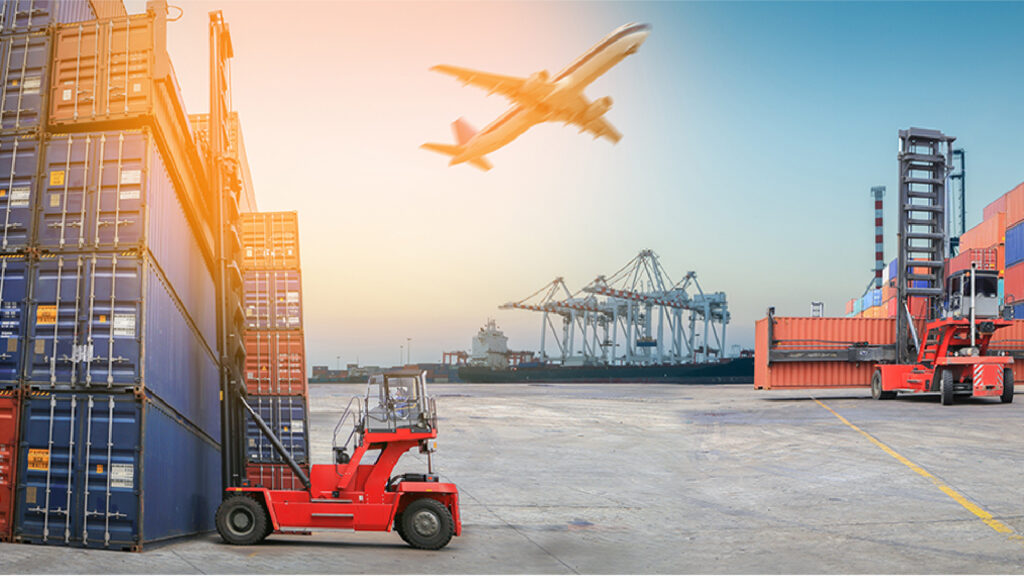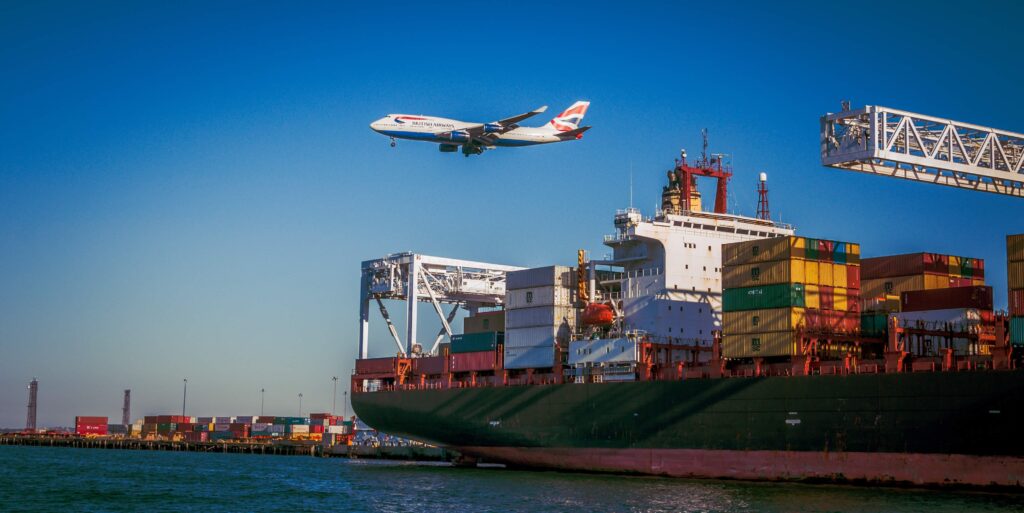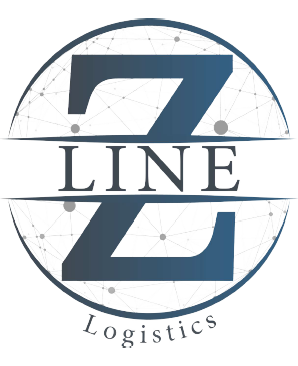Table of Contents
This is our blog where we explore the complex nature of freight forwarding in Kuwait, which plays an essential role in the country’s fast-growing logistics and trading industries. Given that Kuwait is gradually tightening its position as a key logistics center in the Middle East, it is crucial for organizations striving for efficiency in the management of their supply chains and desiring to extend their outreach worldwide to delve deeper into the specifics of freight forwarding in Kuwait.
Freight forwarding in Kuwait is a process that involves a combination of activities such as transporting, translating, and communicating the final business message of the shipment from the shipper to the consignee.
For a country like Kuwait, that is continually experiencing high economic growth rates and is located at the heart of major shipping channels, effective freight forwarding companies are essential in unlocking trade.
In this blog, there are some topics to be discussed: the significance of freight forwarding in Kuwait and outside Kuwait market, weakness, strength and opportunities of the freight forwarding services in Kuwait and useful tips that will help in operating the freight forwarding business.
Whether you are experienced in the logistics field or have no experience in freight forwarding in Kuwait, our tips and important viewpoints will help you predict and make the right choices in the context of Kuwait’s constantly changing trade climate.
What is Freight Forwarding in Kuwait?
Freight forwarding in Kuwait implies the management of movement of freight from one place to another, whether it is within Kuwait or across the globe.
A critical element of the supply chain management, freight forwarding in Kuwait is a process that involves various activities intended to deliver goods to the point of destination effectively, at the least cost possible and within legal frameworks.
Here’s a closer look at what freight forwarding in Kuwait entails:
Transportation Management
Freight forwarders in Kuwait arrange the means of transport for a variety of products using sea, air, and ground transportation.
Hence, freight transport by sea is particularly pertinent due to Kuwait’s geographic location along critical shipping channels in the eastern part of the Persian Gulf. Forwarders ensure they work with the shipping lines, airlines, and truckers to find the best strategies and means of transport to use in the transportation process.
Customs Clearance
Regulation is perhaps one of the most significant factors that characterize the freight forwarding business. Import and export of goods through Kuwait customs has certain rules and regulations that must be followed.
Shippers outsource the relating documentation and formalities to the freight forwarders to facilitate clearances through customs and even to avoid that their freight gets seized or that they are fined.
Logistics and Supply Chain Management
Logistics and supply chain management is the art of planning, implementing, and controlling the movement of raw materials, in-process inventories, and finished goods to meet consumer demand which encompasses sourcing, procurement, conversion, and all the related information flows.
Documentation and Insurance
Document management can be acknowledged to play an important role in freight forwarding in Kuwait. Forwarders obtain and process all shipping artifacts including bills of lading, bills, and certificates of origin. They also make arrangements to avail cargo insurance in case there is a loss or damage on the cargo in transit.
Value-Added Services
Some of the services that many freight forwarders in Kuwait provide apart from the basic services include packaging of the goods, consolidation of shipments, and choice of the best route. These services in some way assist the organizations when it comes to the logistics of their business and expenses.
Local Expertise
Kuwait’s freight forwarders have a better understanding of the law of the land, customs and market situation of the country. A good example is the ability to decipher the different requirements of the Kuwait trade that will ensure that shipments meet those requirements as required by the law.
Read more: Freight Forwarding and Customs Compliance: Navigating the Global Trade Landscape in 2024
What are the key aspects of Freight Forwarding in Kuwait?

Some of the components of freight forwarding in Kuwait include:
Transportation Coordination
- Multimodal Solutions: In Kuwait, it is foreseeable that the freight forwarders apply more than one carrying method such as sea, air, and road transportation at the same time. As for the transportation, maritime transport plays a significant role because of Kuwait’s geographical location, however, air freight is crucial to utilize when the shipment has time constraints.
- Carrier Selection: Selection of a particular carrier for a particular type of cargo is very vital. The forwarders have to discuss and bargain with the shipping lines, airlines, or the trucking companies to obtain the most competitive prices and proper services.
Customs and Regulatory Compliance
- Customs Clearance: Custom regulations of Kuwait are also an interesting element that interferes with freight forwarding in Kuwait. Forwarders are also responsible for all the documentation such as import/export declarations and duties to facilitate customs formalities.
- Regulatory Knowledge: The laws in the local country as well as international trading regulations should be followed to the later to prevent delays and penalties.
Logistics and Supply Chain Management
- Warehousing: Some of the services delivered by many of these freight forwarders include storage of the goods, inventory, and order picking. This is useful in enabling business organizations to be in a position to effectively sort their inventories.
- Distribution: Forwarders organize the transfer of goods, so that the latter is delivered to the final recipient on time. It may include planning with local transportation companies or even dealing with the final mile delivery.
Documentation and Paperwork
- Shipping Documents: International shipments require proper documentation and this must be done to the best of their ability. These are bills of lading, the commercial invoices, packing list, and certificate of origin.
- Insurance: Freight forwarders usually facilitate shipment insurance to help in the case of any possible loss or damage of goods in transit for the sake of the businesses.
Value-Added Services
- Consolidation: There is always an option to consolidate several small shipments into a single one, one that can save money and time. Forwarders deal with consolidation activities and also do the arrangements of grouping of cargoes.
- Packaging: This is an important factor as it helps in the protection of the produced goods from damage while in transit. Logistic service providers, especially freight forwarders may be required to provide packing services to make sure cargo is packed properly and meets the standards of shipping.
National and Local Market Knowledge
- Local Networks: Kuwait based freight forwarders have developed contacts at the host country, carriers, and other service providers – this makes it easier to carry out operations and solve issues that may arise in more efficiency.
- Market Insights: It is thus important to understand local markets and trade practices as this will help in the effective management of the supply chain.
Technology and Tracking
- Tracking Systems: Some of today’s tracking systems offer minute by minute follow of the business’ shipments, which cater to the visibility and transparency aspects of the supply chain.
- Technology Integration: Once the solutions tackle the technology use in logistics, documents, and communication, the performance will improve and the errors will minimize.
Customer Service
- Communication: Vivid and early understanding of the problem is the essence of its solution. Shipping service suppliers relay information and deal with complications that occur in transit so as to keep the clients satisfied.
- Problem Solving: The students should be able to solve problems which might occur during the shipping so as to be able to avert any emergence.
These aspects in combination facilitate and may transform the freight forwarding in Kuwait and improve the companies’ supply chain by decreasing the costs and delivering goods on time.
Read more: AI in Customs Clearance: Exploring How It Is Used in Dubai
What is the importance of Freight Forwarding in Kuwait?

Actually, freight forwarding in Kuwait is one of the most important segments that support Kuwait economy and trading structure. Its importance can be understood through several key aspects:
Economic Development and Trade Liberalization
- Trade Hub: Kuwait has a strategic position in the Persian Gulf for the trading needs of the Middle East. Freight forwarding in Kuwait plays an active part in both import and export, thus being an important element of Kuwait’s status as the key link in regional and international commerce.
- Economic Contribution: Proper freight forwarding services are crucial for the proper distribution of goods and plays a crucial role in the development of Kuwait economy. This sector assists many companies so that the supply of raw materials, affectation of finished products, and delivery of other necessary commodities take place.
Streamlined Supply Chains
- Operational Efficiency: This type of company participates in the management and control of the supply chains, as well as the transport, stores and operations. It is a process that helps in elimination of time wastage, increased cost cutting, and improvement of the total supply chain.
- Inventory Management: Freight forwarding supports a company to supply its products to the market in time and hence assist in maintaining adequate stock. This helps in managing stocks in that it minimizes the occurrence of stock outs and at the same time it also eliminates over stocking.
Navigating Regulatory Complexities
- Customs Compliance: Kuwait based freight forwarders have Canadian legal knowledge and customs procedures knowledge which are crucial in international business. This relieves them of the task of dealing with the bureaucratic and legal issues to do with imports and exports so as to avoid any legal hitches with shipments.
- Regulatory Knowledge: Forwarders are aware of the new regulations and changes in trade policies and assist organizations to keep up with such changes.
Supporting Diverse Industries
- Oil and Gas: In Kuwait, the importance of efficient freight forwarding cannot be overemphasized, especially to the oil and gas industry which relies on equipment and materials as well as the transportation of products. This industry particularly has to rely on forwarding services regarding the import and export of goods.
- Retail and Consumer Goods: The retail sector has also benefits starting from reliable freight forwarding, where the consumer goods should be supplied to the markets in adequate amounts for them to meet consumers demand.
Enhancing Connectivity
- Global Reach: Freight forwarders are responsible for linking Kuwait to different markets; an aspect that ensures that its products are sold in the global markets while also making sure that there is adequate access to diversified goods from across the world. This connectivity is critical for organizations that intend to operate internationally and open up the foreign markets.
- Transport Infrastructure: Freight forwarding is essential in Kuwait to enable the proper utilization of the transport sub sector’s existing networks, ports, airports and road networks.
Risk Management and Problem Solving
- Insurance and Safety: Cargo insurance is coordinated by the freight forwarders and they also take responsibility for managing risks that may be involved in shipment hence acting as a shield for the businesses from any losses that may occur as a result of damage or theft at the time of shipment.
- Issue Resolution: They are able to deal with and resolve all issues concerning shipping and this puts them in a position to mitigate any disruption or delay which may in fact affect the business.
Cost Efficiency
- Economies of Scale: Freight forwarders may have access to a carrier at a cheaper price because they patronize their services frequently this translates to cheaper charges from carriers passed to the clients.
- Optimization: Forwarders advise their clients on the best routes, how to combine their shipments and how best to transport their goods in the cheapest way possible.
Technological Advancements
- Tracking and Transparency: Today, services for freight forwarding empower extensive applications based on Information communication technology to enable real-time tracking of consignments to improve on the aspect of transparency to encourage business people to keep on track their shipment.
- Data Integration: Technological enhancement of solutions helps to get better communication between different suppliers and for this reason, operating efficiency is increased.
Therefore, freight forwarding in Kuwait plays a crucial role in connecting Kuwait and the global market hence boosting the economy and efficiency of the supply chain. Through the regulation of national and international legislation, risk assessment and control, and establishment of links to the worldwide economy, it serves commercial purposes that support the country’s economic development and the region’s status.
What are the challenges of Freight Forwarding in Kuwait?

Freight forwarding in Kuwait plays a significant role in Kuwait’s trade and supply chain hence the importance of understanding some of the challenges that exist in this sector in identifying relationships between the variables under test and in the achievement of research objectives. Here are some key challenges faced in freight forwarding in Kuwait:
Regulatory and Customs Complexities
- Regulatory Changes: Customs rules and trade policies can be altered quite often, which means that it is evaluated as uncertain and needs to be constantly adjusted. It must be noted that freight forwarders need to remain abreast with the local legislation and international policies governing the business.
- Bureaucratic Processes: Dealing with bureaucratic formalities in Customs clearance may take time and involve many formalities and this may lead to a lot of time being wasted not to mention having to spend lots of money.
Infrastructure Limitations
- Port Congestion: As it will be illustrated hereunder, Kuwait’s ports especially the Shuwaikh port could at times be congested this a con to efficient handling and clearance of cargos. This is disadvantageous in a way that it alters the shipping schedules and extends the overall time taken.
- Aging Infrastructure: The latest transport and logistics facilities may be slightly outmoded in Kuwait thereby affecting the movement of cargo or needs a lot to be upgraded.
Logistical Coordination
- Multimodal Transport Challenges: Operations which may entail use of water, air, and ground transport may be difficult to efficiently organize due to interoperability entailing definite changes.
- Last-Mile Delivery: As it concerns the last mile delivery across heavily congested urban centers or remote areas the options here may prove a little difficult due to traffic patterns and physical access constraints.
Economic and Geopolitical Factors
- Economic Fluctuations: Volatility in the economy or fluctuations in the price of oil affects the amount of freight to be transported and therefore the demand for the services of the freight forwarders.
- Geopolitical Tensions: Geopolitical issues within the regions may alter the flow of trade logistics, incidences of disruption in the flows of cargo and even the level of insecurity.
Environmental and Compliance Issues
- Environmental Regulations: Continually developing environmental policies on emission control may put pressure on shipping to modify the practices and systems.
- Compliance Costs: Meeting compliance standards and regulations often involves additional costs, which can impact overall profitability.
Technology Integration and Cybersecurity
- Technological Advancements: It is not easy to constantly learn about new technologies and then implement it within a firm, especially when you are a small firm or a personnel who is not very much into technology.
- Cybersecurity Threats: The advancement in tracking and management technologies presents a threat of cyber-attacks, hacking and Trojan attacks to the freight forwarders.
Human Resource Challenges
- Skill Shortages: Inadequate numbers of qualified employees who could work as experts in the sphere of freight forwarding in Kuwait and logistics can result in the poor quality of service provision.
- Training and Development: Ongoing training and professional development for staff in light of changes in the industry and new developments which are very important is equally costly.
Cost Management
- Rising Costs: There are also operational factors that can mortgage profitability, these include costs of fuel, or the costs of shipping among others. The costs have to be managed and controlled to fit in the overall cost of the products which are sometimes another tremendous experience.
- Operational Efficiency: Evaluating efficiency activities for better cost control and elimination of waste remains a continuous endeavor and capital investment in technology advancements and good processes.
All these require systematic planning on how to meet them, investing in infrastructure and technology as well as being keen on regulatory and economical changes. Therefore, proper handling of these factors can lead to improved service delivery of freight forwarding in Kuwait and the expansion of the Kuwait economy and trade.
Lastly, it can be said that freight forwarding in Kuwait plays a significant role in the growing machinery of trade and logistics. With Kuwait in the process of strengthening its positions in the menaced and on the international market as a major transport and logistics center, the functions of freight forwarders become critically important for the proper organization of transport activities.
It has to do with resilience, which defines the industry in its fight against the odds with the matters of life: legislation, infrastructure, and money. The aforementioned challenges can be overcome by adopting local knowledge, timely adaptation of latest technology, and increasing customer satisfaction level, which in turn will help the freight forwarding in Kuwait to bring positive changes in the supply chain.
Such dynamics as the current state of development of the outsourcing of freight forwarding in Kuwait; the dynamics of the development of freight forwarding services in Kuwait in the context of global changes in trade, trends in the development of freight forwarding services through the application of new technological solutions; and the directions of the country’s further economic development will also influence the further evolution of freight forwarding services in Kuwait.
While businesses maintain the trend of adjusting to such changes and searching for better solutions, freight forwarding is set to experience a steady increase in demand, consolidating its status as an essential element of global trade and a tool for Kuwait’s further economic development.
For the businessman seeking ways of increasing sales, the logistics engineer aspiring to achieve better standards and any other interested party, learning the dynamics of the freight forwarding in Kuwait offers insight into the operation of a global economy and the mechanisms that make trade possible in today’s interconnected world.




